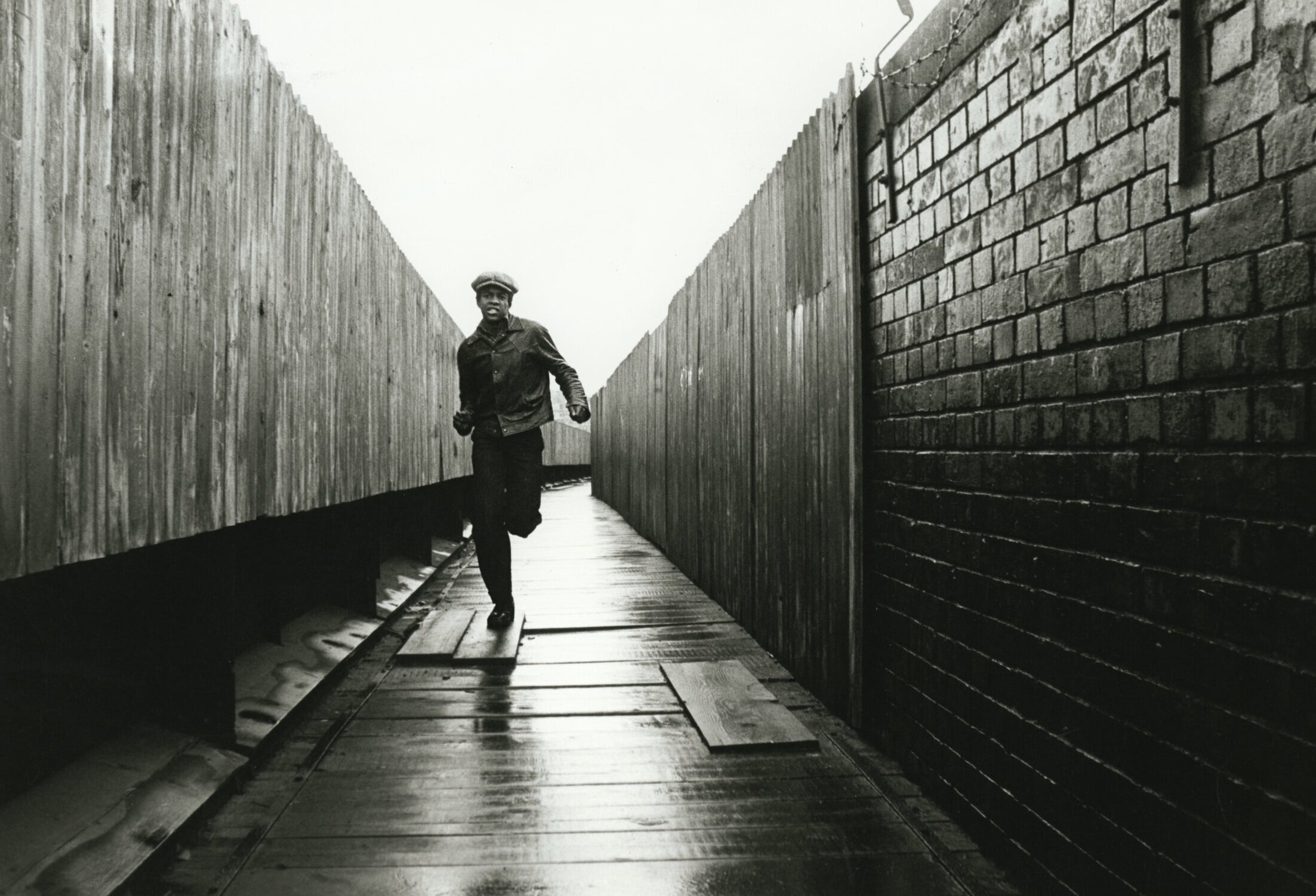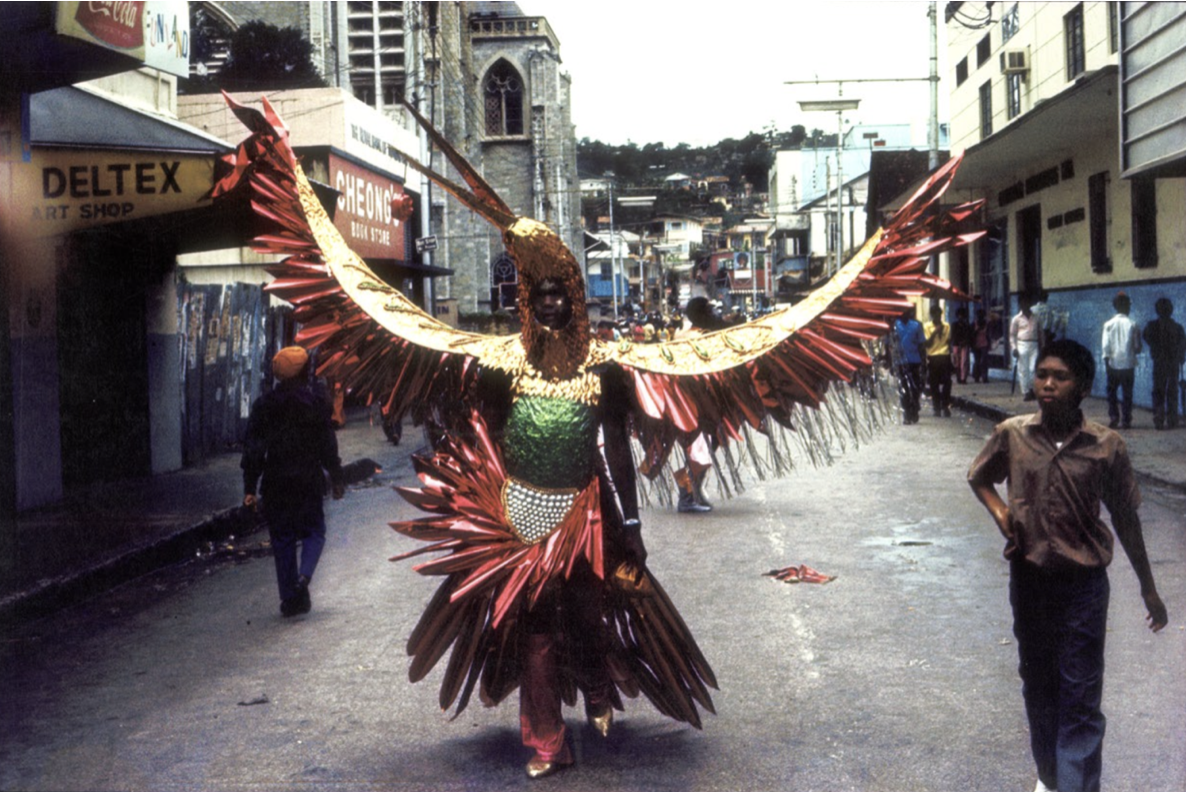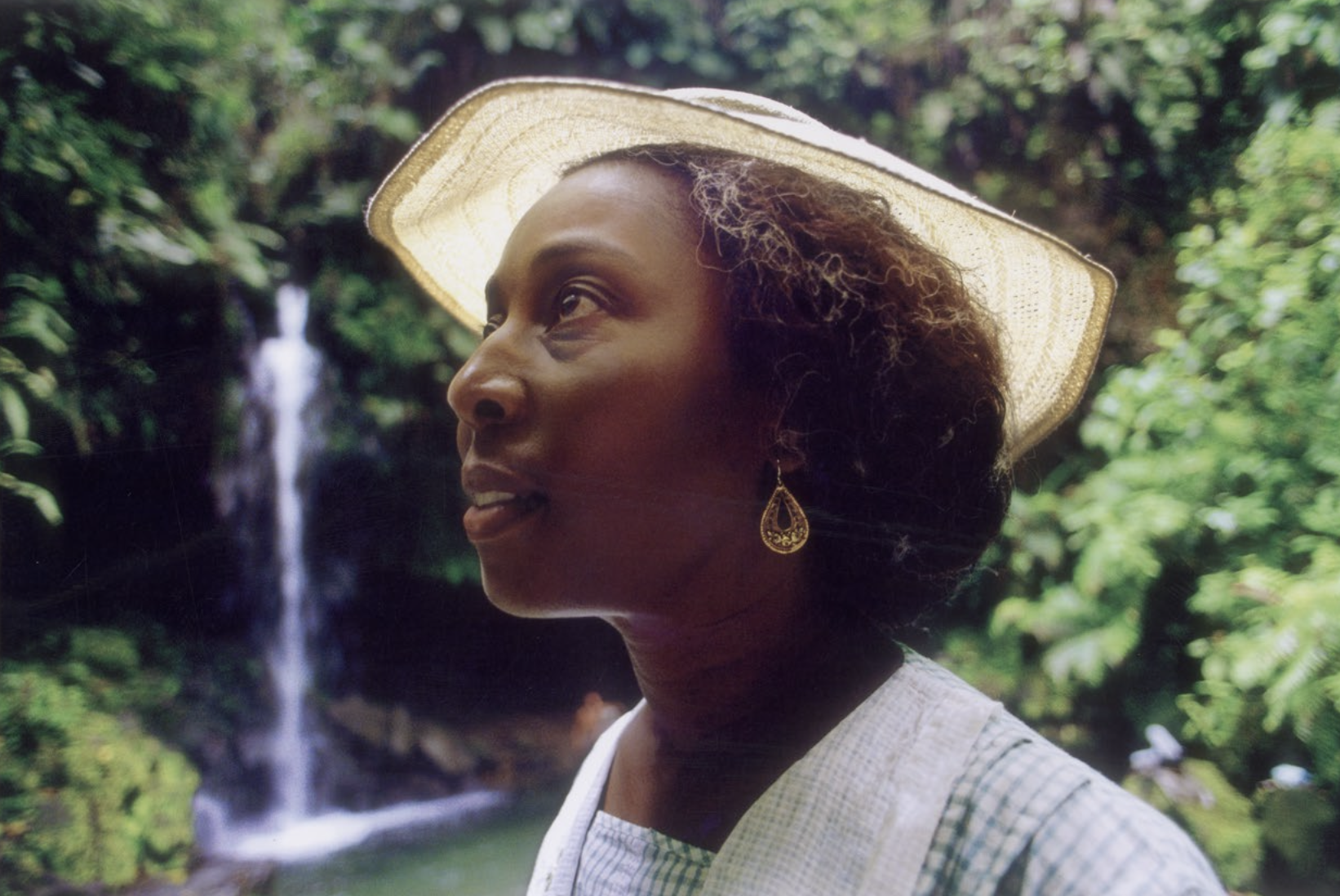
FILM.
In 1966, Ové directed The Art of the Needle, a short film for the Acupuncture Association. In 1969 he made Baldwin's Nigger, in which African-American writer James Baldwin — in conjunction with civil rights activist and comedian Dick Gregory — discusses the Black experience and identity in Britain and America. Filmed at the West Indian Students' Centre in London, the film documents a lecture by Baldwin and a question-and-answer session with the audience.
Ové's next film, shot at the first major reggae concert in Wembley Stadium in 1970, was Reggae, which illustrates the social and political messages in the music and features, amongst others, Toots and the Maytals, Millie and Desmond Decker. It had a successful theatrical run and was then shown on BBC television. Ové subsequently made other documentaries for the BBC, including King Carnival (1973) and Skateboard Kings(1978) in The World About Us series. In 1974, he directed the film for which he is best-known, Pressure – cited in The Guinness Book of Records as the first full-length dramatic feature film by a Black director in Britain. It follows three generations within a black family in London; from the parents who came with the Windrush generation with their first son who becomes part of the Black Power Movement, to their younger British born son who struggles to find his place between the two cultures.
Pressure featured scenes of police brutality that ostensibly led to its banning for two years before it was eventually released in 1976 to wide acclaim.
Ové's other television work has included directing A Hole in Babylon (co-written with Jim Hawkins, based on the Spaghetti House siege, featuring a cast including T-Bone Wilson, Trevor Thomas and Archie Pool), made for the BBC's Play for Today series, and first transmitted on 29 November 1979; The Garland, co written with H O Nazareth, also for Play for Today, focusses on the issues of two Asian families in Britain, four episodes of the pioneering series Empire Road in 1979, an episode of The Professionals ("A Man Called Quinn", 1981) and The Equalizer ( 1996 in the BBC series Hidden Empire), about the 1919 Amritsar Massacre, which won two British Indian Academy Awards in 1996.
His film Playing Away (1987, with a screenplay by Caryl Phillips), starring Norman Beaton centres on the residents of the fictional British village of Sneddington, who invite the” Caribbean Brixton Conquistadors" (from South London) for a cricket match to commemorate "African Famine Week”. The film highlights racial and social tensions between the villagers and the visitors through the cricket game.
Ové made 2 documentaries back to back in India in 1984 for Channel 4, Dabbawallahs, filmed in Mumbai, and Who Shall We Tell? about the aftermath of the Bhopal gas disaster which was nominated for the John Grierson Award in 1986.
In 1991 he made a 4 part series, again for Channel 4, The Orchid House, based on the novel by Phyllis Stand Allfrey and adapted by Jim Hawkins. Starring Diana Quick, Nigel Terry, Frances Barber, Lennie James and Madge Sinclair, Shot in Dominica, The Orchid House tells the story of the return of three white sisters to their Caribbean birthplace, told through the eyes of Lally, their Black nurse and chronicles the decline of a once wealthy planter family.
Ové's 2003 film Dream to Change the World (edited by Pete Stern) was a documentary about the life and work of the late John La Rose, the Trinidad-born activist, publisher and writer and founder of New Beacon Books in London.
baldwin’s nigger.1969.
Baldwin's Nigger was Horace Ové's first film. Shot in a plain and simple verité style in black and white, the film represents a triumph for the filmmaker in presenting dialogue between black people as if no white people were present. This allows the speakers and audience to deal with issues without the need to self-censor. In addition it allows James Baldwin to make a direct connection with his mostly African-Caribbean audience by drawing on cadences, language and a vibe which cuts through the varied African cultures of the New World.
REGGAE.1970.
"Reggae", was the first in depth film on reggae music to ever be produced. Filmed at Wembley Stadium during the 1970 Caribbean Music Festival, the film documented the first large reggae concert to ever be held in Britain (it drew an astonishing 14,000 people).
The film includes footage of the extreme poverty of the West Indies and makes a case for reggae's radical roots. Interviews with disk jockey Mike Raven and producer Graham Goodall review the history and development of the music. But for fans, the highlights of the movie are the performances by The Pyramids (Symarip), The Pioneers, Millie Small, Toots & The Maytals, Bob Andy and Marcia and Desmond Dekker.
king carnival.1973.
Made for the BBC’s ‘The World About Us’ Series, with commentary written by Lindsay Barrett, and Narrated by Andrew Salkey.
Acclaimed as the best documentary ever made concerning the history and event of The Trinidad Carnival'; it traces its origins through the island’s turbulent past and the effects of its Yoruba, East Indian and European cultural influences.
pressure.1978.
Pressure is a British drama film directed by Horace Ové and starring Herbert Norville, Oscar James and Frank Singuineau. It is hailed in the Guinness Book of records as the UK's first Black dramatic feature-length film, and has been characterised as "a gritty and dynamic study of a generation in crisis". Ové co-scripted with Trinidadian novelist Sam Selvon, after recording dozens of interviews with young blacks in Ladbroke Grove. Ové has said: "What Pressure tried to do was to portray the experience of the Windrush generation, the kids who came with them and the kids born here”.
In 2017, The Telegraph ranked Pressure as the 42nd greatest British film of all time. It also topped The Guardian's list of 10 pioneering films reflecting black life in Britain over the last 40 years.
SKATEBOARD KINGS.1978.
Made for the BBC’s ‘World About Us’ Series, featuring a young Tony Alva, Stacey Perralta and the Dogtown Crew.
Groundbreaking documentary uncovering the then little known Californian sport called ‘skateboarding’. A uniquely styled study focusing on the ‘tribal’ nature of the various groups involved in the sport and features all the top skateboarders of the time.
a hole in babylon.1979.
TV Feature created for ‘Play For Today’ BBC1 in 1979, Co written by Jim Hawkins and Horace Ové. Based on real events surrounding The infamous 1975 Spaghetti House siege, where two West Indians and an African try to finance an African studies programme for black British children, by robbing a local Italian restaurant. Events culminate in a siege in the spaghetti house in Knightsbridge, where the police become involved and the situation comes to a head. One of the first major dramas to intercut real news archive footage with dramatic re-enactments, the film stars T-Bone Wilson, Trevor Thomas and Archie Pool.
THE GARLAND.1981.
TV Feature created Play For Today BBC1, Co-Written by Horace Ové and H. O. Nazareth. Told from the viewpoint of two Asian couples, one a mixed marriage; a middle-class Asian man with a white wife and their son. Her understanding of her husband’s culture evolves as her son falls for a Muslim girl and struggles with his own identity.
The other couple is their local Muslim butcher who falls foul of English law when he divorces one wife and marries another within the Muslim faith, resulting in her being deported as the other family tries to help.
WHO SHALL WE TELL.1984.
Produced for Channel 4 by Annabelle Alcazar and written by Mala Sen.
An investigative look at the personal stories of people affected by the 1984 Union Carbide gas disaster in Bhopal, India.
Nominated for the prestigious John Grierson Award for Best Documentary.
PLAYING AWAY.1987.
Feature Film, written by Caryl Phillips.
A Black cricket team from Brixton, having never left London, head off on a visit to a conservative white Suffolk village. The film deals with three differing sets of society at that time, and is a spotlight on racial and class tensions as highlighted through the cricket game. The film stars Joe Marcelle, Nicholas Farrell, Norman Beaton, Robert Uhrquart, Neil Morrissey and Ross Kemp.
THE ORCHID HOUSE.1991.
Channel 4 Drama Series based on the novel by Phyllis Shand Allfrey adapted by Jim Hawkins.
Set on the island of Dominica, the series starred Elizabeth Hurley, Nigel Terry, Madge Sinclair, Indra Ové, Lennie James and Francis Barber.
The Orchid House tells the story of the return of three white sisters to their Caribbean birthplace, told through the eyes of Lally, their Black nurse and chronicles the decline of a once wealthy plantation family.










